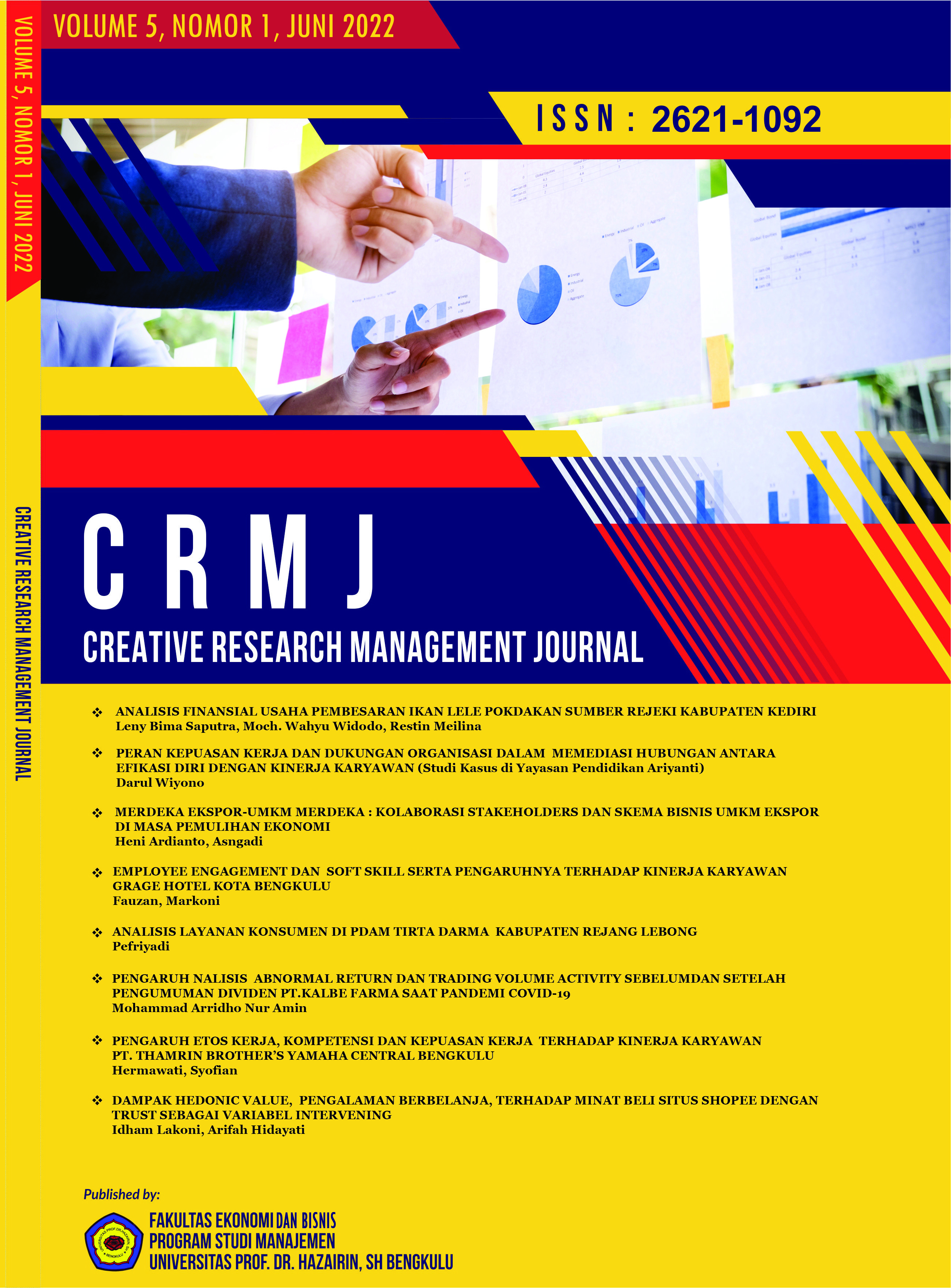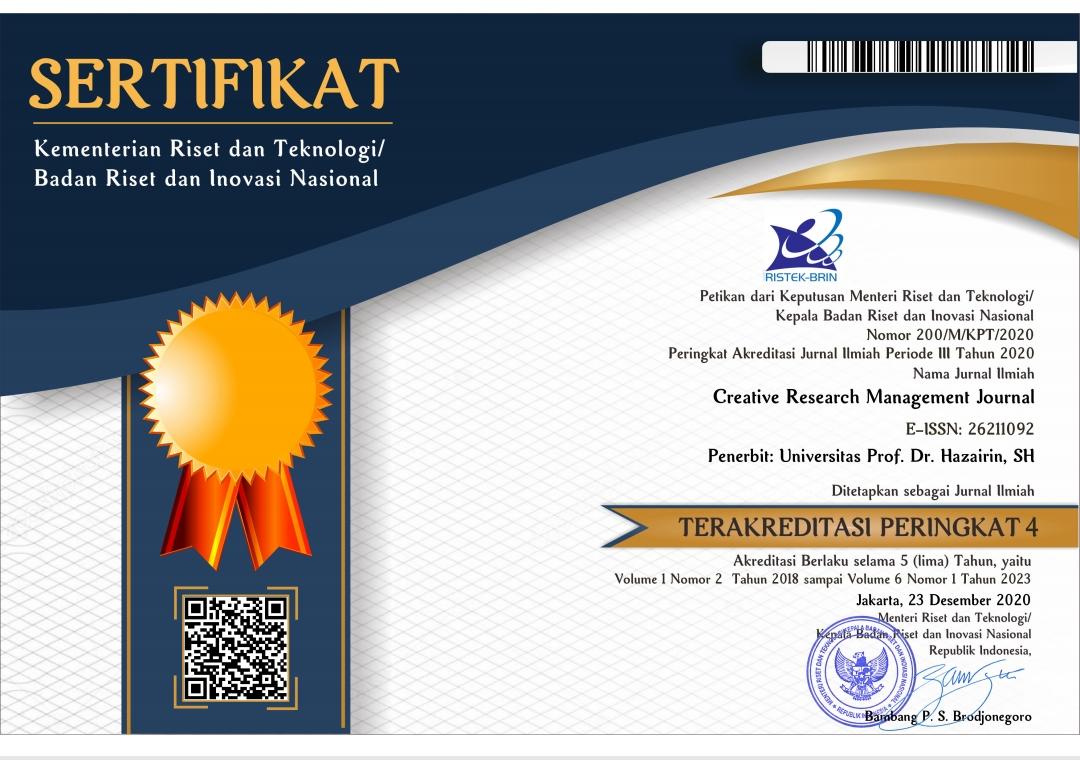PERAN KEPUASAN KERJA DAN DUKUNGAN ORGANISASI DALAM MEMEDIASI HUBUNGAN ANTARA EFIKASI DIRI DENGAN KINERJA KARYAWAN (Studi Kasus di Yayasan Pendidikan Ariyanti)
DOI:
https://doi.org/10.32663/crmj.v5i1.2672Keywords:
Self-Efficacy, Job Satisfaction, Organizational Support, Employee PerformanceAbstract
This research aims to find out how big the role of job satisfaction and organizational support
in mediating the relationship between self-efficacy and employee performance at the Ariyanti
Education Foundation. This research is a descriptive and verification research, the research
method used is explanatory survey, and data analysis using a structural equation model
Structural Equation Model, SEM) through the Partial Least Square (PLS) method processed
with the application of SmartPLS 3.3.7 statistics. The number of respondents was 63 obtained
through the distribution of questionnaires with the stratified proportional random sampling
method. The results of the research explain that job satisfaction and organizational support
can mediate well between self-efficacy and employee performance at the Ariyanti Education
Foundation by 62,70%. This study has limitations in terms of the conceptual framework used,
namely only connecting variables that are estimated to have a relationship with the
dependent variable so that there are still possibilities for other variables that have not been
included in the conceptual framework.














